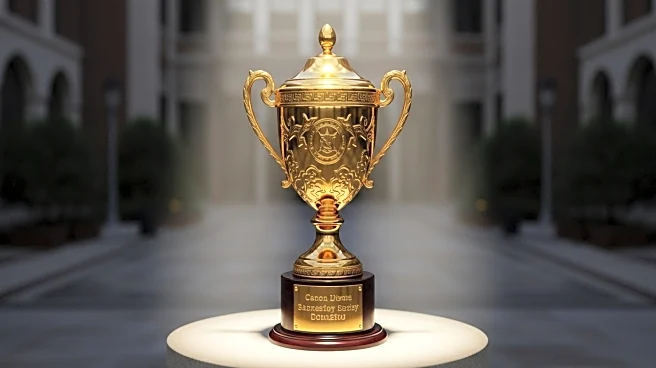What is the story about?
What's Happening?
Georgia Tech has announced a historic $100 million bequest from alumnus John W. Durstine, marking the largest single gift in the institution's history. Durstine, who passed away in February at the age of 90, was a graduate of Georgia Tech's mechanical engineering program and later earned an MBA from Harvard Business School. He spent over three decades at Ford Motor Company, contributing significantly to truck and light vehicle design. The donation is earmarked for the George W. Woodruff School of Mechanical Engineering, with plans to enhance faculty positions, infrastructure, and student programming. The funds will establish endowed chairs and professorships, promote interdisciplinary research, and expand hands-on student programs.
Why It's Important?
This substantial donation is set to significantly impact Georgia Tech's mechanical engineering department, enhancing its ability to attract top-tier faculty and students. By investing in infrastructure and interdisciplinary research, the gift aims to elevate the school's status in engineering education and innovation. The expansion of student programs will provide more opportunities for practical learning and competition, fostering a robust educational environment. This bequest underscores the loyalty and vision of Georgia Tech alumni, potentially inspiring further philanthropic contributions to the institution.
What's Next?
Georgia Tech will begin implementing the funds to establish new faculty positions and enhance research facilities. The expansion of student programs will likely attract more students interested in hands-on learning experiences. The institution may also see increased interest from prospective students and faculty, drawn by the enhanced resources and opportunities. As the school leverages this gift, it may set a precedent for future donations, encouraging other alumni to contribute to its growth and development.
Beyond the Headlines
The donation highlights the role of alumni in shaping the future of educational institutions. It raises questions about the impact of large gifts on academic priorities and the balance between donor intentions and institutional needs. The focus on interdisciplinary research and hands-on learning reflects broader trends in engineering education, emphasizing practical skills and innovation. This gift may also influence other universities to seek similar contributions from their alumni, fostering a culture of giving back to educational communities.


















